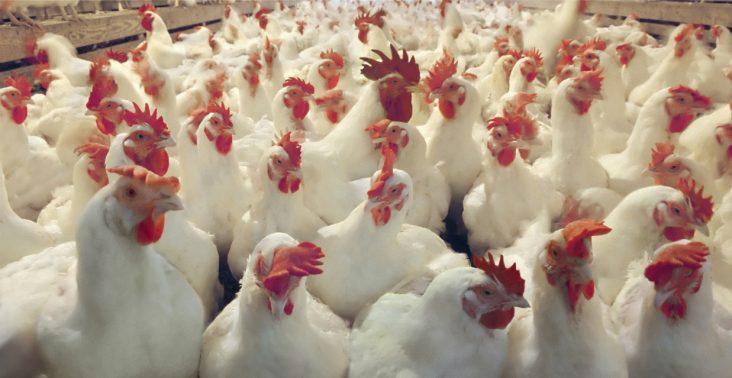Poultry, agriculture could be targeted if Mexico retaliates on new tariffs imposed by Trump
by June 3, 2019 6:38 pm 938 views

The poultry industry is concerned it will be targeted by retaliatory tariffs on exports in the wake of the 5% duty on Mexican imports announced by President Donald Trump this past weekend in his effort to pressure the border country to improve security measures.
Since Mexico is the largest importer of U.S. chicken and turkey, the poultry industry has a reason for concern, according to agriculture industry officials.
The proposed 5% tariffs would be effective June 10 and increase by 5% each month until capping out at 25%.
The U.S. Department of Commerce said the tariffs could have a wider reach than any other previous program touching practically all sectors and consumer goods that are used in everyday life. Last year, the United States imported nearly $357 billion in Mexican goods, the Commerce Department reported.
The latest tariff battle takes place as the United States is also in the process of finalizing its unilateral trade agreement with Mexico and Canada, replacing the North American Free Trade Agreement. The United States-Mexico-Canada Agreement (USMCA) is vital for the poultry industry, according to Sen. Joni Ernst, R-Iowa.
Ernst told the media Monday (June 3) that tariffs aren’t the best maneuver.
“The livelihoods of Iowa farmers and producers are at stake. The USMCA would provide much-needed certainty to our agriculture community, at a time when they need it,” Ernst said. “If the president goes through with this, I’m afraid progress to get this trade agreement across the finish line will be stifled. While I support the need for comprehensive border security and a permanent fix to illegal immigration, this isn’t the right path forward. I’m asking the president to reconsider, and for Democrats to work with us to find a solution to the humanitarian crisis at our southern border.”
Ben Bienvenue, an analyst with Stephens Inc., reported the impact to Tyson Foods is not as high as other processors. Bienvenue said Mexico accounted for roughly 10% of Tyson Foods’ international chicken sales in 2017 — valued at $1.25 billion. He said Mexico accounted for about 48% of Sanderson Farms’ export pounds and 51% of its export dollars last year. Regardless, he noted the poultry industry is much better off when the Mexican market is open and duty-free.
Trade with Mexico is also increasingly important to Butterball turkey. Butterball estimated about 60% of its exports sales are to Mexico and 70% of those products originate from Mount Olive, North Carolina.
The pork industry is also concerned with proposed tariffs. Agriculture Secretary Sonny Perdue has reportedly begun talks with his Mexican counterpart to discuss the impacts on both countries.
The National Pork Council said American pork producers cannot afford Mexican retaliatory tariffs from its largest export market.
